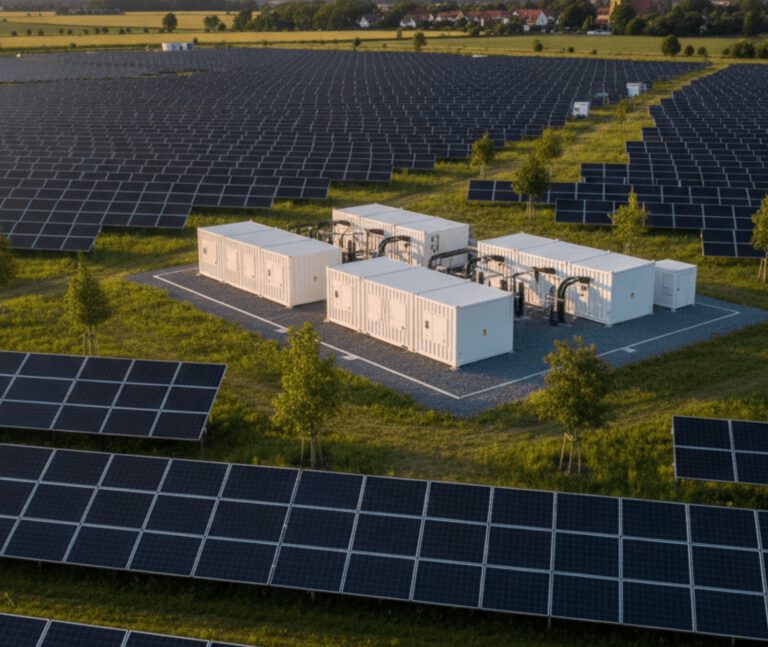Utility-Scale Solar and Hybrid Projects in Europe
A look at the skills required for Utility-Scale Solar and Hybrid Projects in Europe

Current Trends in European Utility-Scale Solar
The development of solar energy in Europe is increasingly characterized by large-scale projects. According to SolarPower Europe, utility-scale installations currently represent a key area of growth in the market. This trend is influenced by various factors, the first being the attractive economics of scale.
The International Energy Agency (IEA) reports that utility-scale solar is now one of the most cost-effective sources of new electricity generation in many countries. This makes it a viable economic option for corporations and utilities looking to secure predictable, long-term energy prices. In fact, data from Pexapark shows that a significant amount of renewable energy capacity was contracted by corporations in Europe in 2024, with solar being a prominent technology. Secondly, efforts to enhance regional energy security have supported the development of large, domestic power sources as an alternative to imported fossil fuels.
This growth is not without its challenges: A 2024 report detailed by the think tank Ember shows that a considerable number of renewable projects are delayed by grid connection queues and lengthy permitting processes. Across Europe, hundreds of gigawatts of approved renewable projects are currently waiting in line for a connection point to the electrical grid.
This issue stems largely from the fact that the continent’s grid infrastructure was designed for a 20th-century system of a few large, centralized fossil fuel power stations. It is struggling to accommodate the rapid influx of many decentralized, variable renewable sources like solar farms. Upgrading this legacy infrastructure to increase capacity is a complex, slow, and expensive process, creating a bottleneck for new energy projects.
The Integration of Hybrid Systems
A notable development in this growth of large-scale solar is hybridization. A hybrid project involves co-locating solar panels with other technologies, most commonly Battery Energy Storage Systems (BESS). This approach is a step toward creating more consistent renewable power generation.
The potential benefits include improved grid stability, as batteries can store excess energy and discharge it during peak demand. By sharing infrastructure, hybrid projects can also reduce development costs. An example of this trend is a project in the Spanish municipality of Cedillo, which Iberdrola announced is the first hybrid photovoltaic and hydroelectric plant in the country, creating a flexible asset that can provide power at different times of the day.
Required Skills for the Utility-Scale Sector
Developing and operating these large projects requires a more specialized skill set than is typical for residential solar. There is a need for professionals who can manage the specific requirements of the utility-scale sector.
Key roles in this field include:
Project Developers with knowledge of finance and permitting.
Grid Interconnection Engineers who specialize in high-voltage systems.
SCADA & Control Systems Specialists.
Data Analysts for energy forecasting and operational strategy.
The utility-scale solar sector is a significant component of the ongoing energy transition. For individuals with the appropriate technical skills, this area offers relevant career opportunities. For more information about developing international training and recruitment programs for these skills, contact us.
